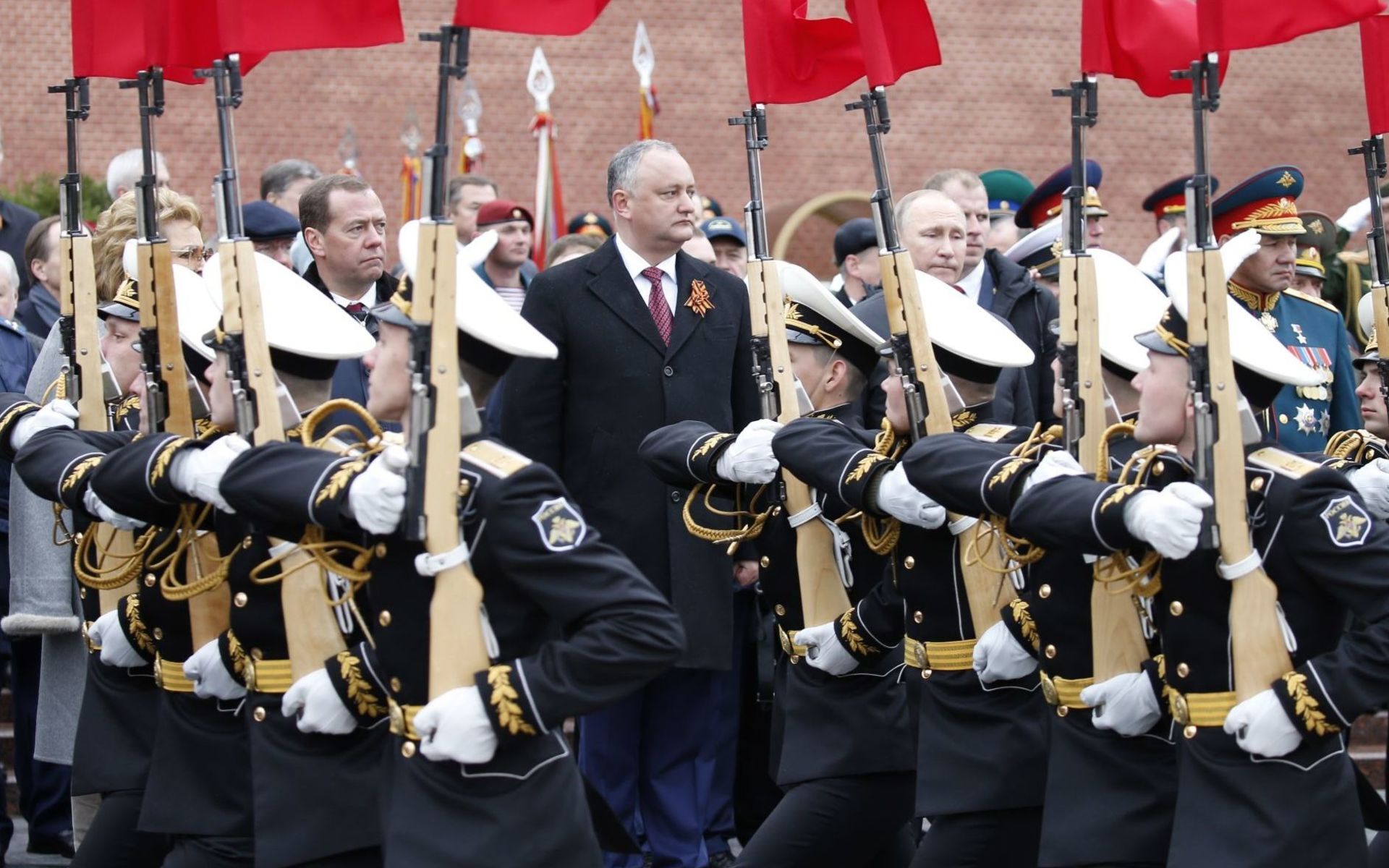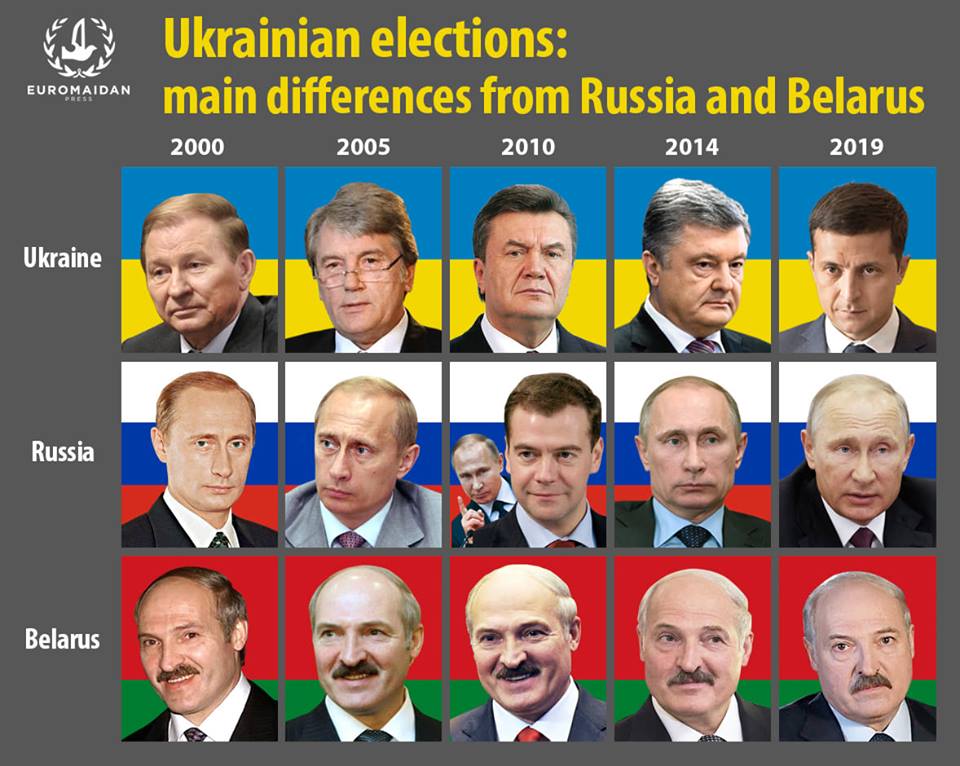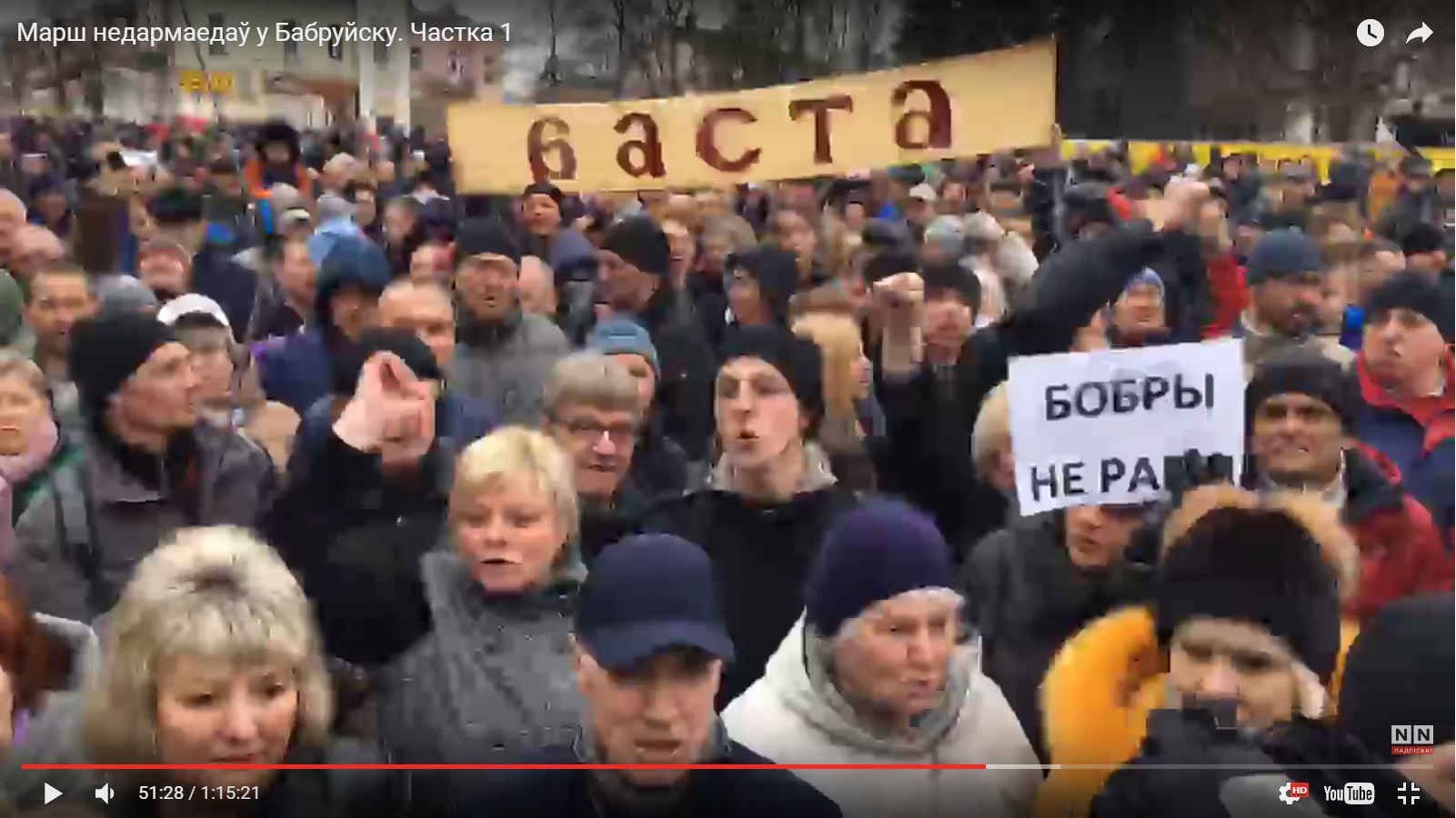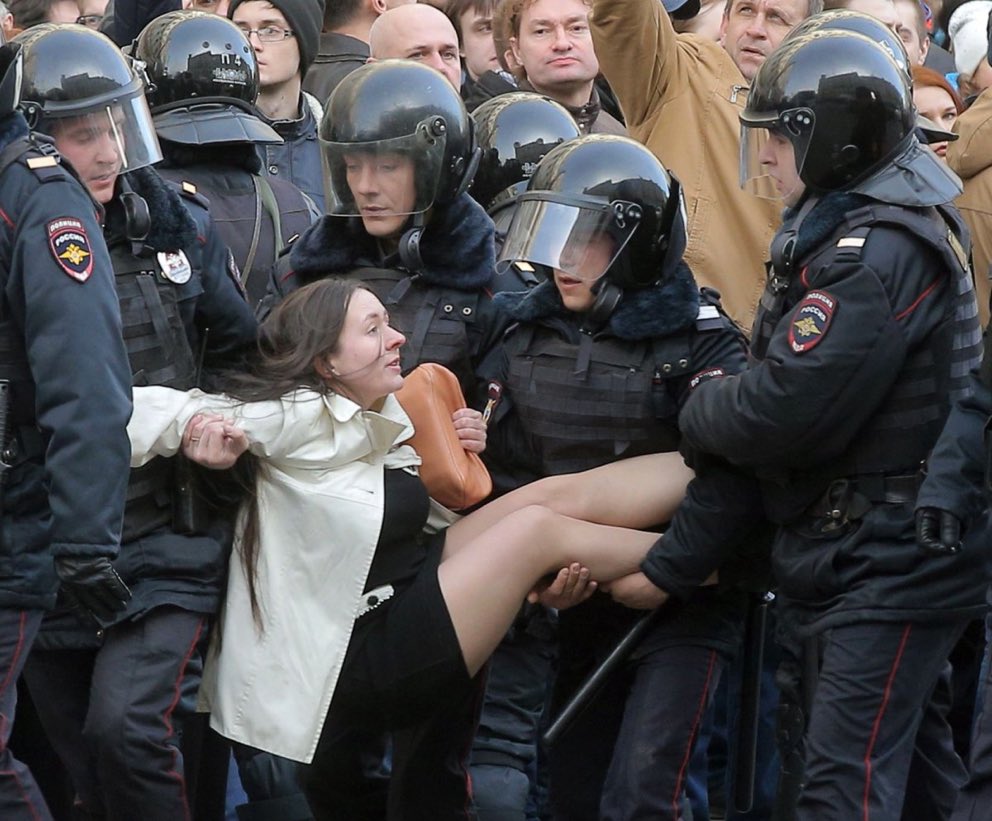Only one leader of another former Soviet republic, Moldova’s Igor Dodon, joined Vladimir Putin for Moscow’s Victory Day parade, a development that “may not have been planned but that certainly should have been foreseen,” marking as it does the end of the post-Soviet era and its replacement by “’the Russian world,’” Vadim Dubnov says.
“Slowly and as the mathematicians say asymptotically … the post-Soviet era with its elite solidarity and devotion to Moscow is running out,” the Moscow commentator says in today’s Novaya gazeta. Moldova’s Dodon it would appear is “the last of those who suppose the past is important” for their future.
Under the terms of “the old post-Soviet model … Moscow’s role was passive” because everyone was still linked to the past. But, Dubin argues, “the doctrine of ‘the Russian world’ is on the contrary active and aggressive … it penetrates everything like radiation” and doesn’t rely on the past but on Moscow’s action and mobilization of large groups of people abroad.
Moscow isn’t interested in victories: it is concerned about having a presence that it can use to take advantage of situations in many countries as they develop. And it gains a victory because those it targets, like the Democratic Party in the United States, see it as “a threat of planetary size.”
And that means this, Dubnov concludes. There has been a new definition of what is good and what is bad. “In general, you no longer will come to us for the parade: that means that we will come to you” not with tanks necessarily but with bikers and hackers who send a signal that Russia is still around and must still be reckoned with.
Related:
- Volodymyr Vyatrovych: Hopefully Ukraine will soon commemorate Victory Day on May 8
- Incredibly shrinking: Putin’s ‘Russian world’ in the post-Soviet space
- Moscow spy services said deploying Russian criminal world against Ukraine
- Seven reasons why Putin’s war in Ukraine is a turning point in Russian and world history
- Soviet myths about World War II and their role in contemporary Russian propaganda
- Heroes past and present: Remembering Bolotnaya and Russia’s Victory Day





